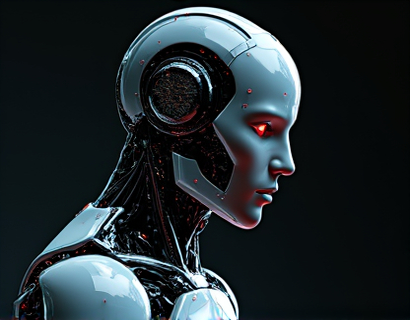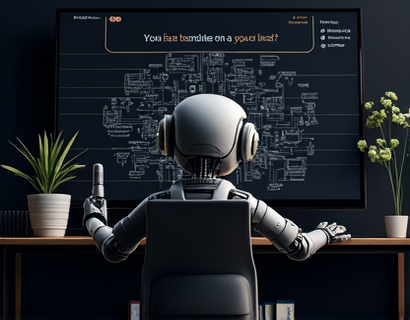Unlock the Future of Smart Living: Discover Cutting-Edge Appliances for the Modern Home
The modern home is evolving at an unprecedented pace, driven by technological advancements and a growing demand for efficiency and convenience. The integration of smart technology into everyday appliances is redefining the way we live, making our homes smarter, more efficient, and more enjoyable. This article delves into the latest innovations in smart appliances, exploring how these cutting-edge devices can transform your daily routines and elevate your lifestyle. From energy-saving marvels to intuitive voice-controlled systems, discover the future of smart living and how it can be seamlessly incorporated into your home.
Understanding Smart Appliances
Smart appliances are not just gadgets; they are intelligent devices that connect to the internet and can be controlled remotely through smartphones, tablets, or voice assistants. These appliances range from refrigerators and ovens to washing machines and thermostats. The core idea behind smart appliances is to enhance convenience, save energy, and provide real-time data to help you manage your home more effectively. For instance, a smart refrigerator can track the expiration dates of stored food, suggest recipes based on available ingredients, and even order groceries online when items are running low.
Energy Efficiency and Cost Savings
One of the most significant advantages of smart appliances is their ability to reduce energy consumption and lower utility bills. Smart thermostats, for example, learn your temperature preferences and adjust heating and cooling schedules accordingly, ensuring that energy is not wasted when no one is home. Similarly, smart lighting systems can automatically turn off lights in unoccupied rooms or adjust brightness based on natural light availability. These features not only contribute to a more sustainable lifestyle but also result in substantial cost savings over time.
Enhanced Convenience and Control
The convenience factor of smart appliances cannot be overstated. With the ability to control appliances remotely, you can manage your home's operations from anywhere. Imagine starting your dishwasher before you leave for work or preheating your oven while on your way home from the grocery store. This level of control is made possible through smart home hubs and mobile apps that integrate with various appliances. Voice assistants like Amazon Alexa and Google Assistant further simplify the experience, allowing you to control multiple devices with simple voice commands.
Health and Safety Features
Smart appliances also prioritize health and safety. For instance, smart air purifiers can monitor indoor air quality and automatically activate when pollutants are detected. Smart water filters can alert you when the filter needs to be replaced, ensuring that you always have clean, safe drinking water. Additionally, many smart appliances come with built-in sensors that can detect issues such as gas leaks or overheating, sending alerts to your smartphone to prevent potential hazards.
Smart Kitchen Revolution
The kitchen is often referred to as the heart of the home, and smart appliances are transforming it into a high-tech hub. Smart ovens, for example, offer precise temperature control and can be preheated remotely. They often come with touch screens and built-in cameras, allowing you to monitor cooking progress without opening the door, thus retaining heat. Induction cooktops are another innovative addition, providing faster and more efficient heating compared to traditional gas or electric stoves. Smart refrigerators take convenience to the next level with features like built-in cameras, allowing you to check what's inside without opening the door, and integrated speakers for hands-free music playback.
Smart Laundry Solutions
Laundry is a routine task that can be made significantly easier with smart appliances. Smart washing machines and dryers can be programmed to start at specific times, taking advantage of off-peak electricity rates. They often include sensors that detect the load size and type, optimizing water and energy usage for each cycle. Some models even offer remote monitoring through apps, allowing you to check the status of your laundry and receive notifications when cycles are complete. This level of automation ensures that your clothes are always clean and fresh, without the constant need to monitor the machine.
Smart Home Integration
The true power of smart appliances lies in their ability to integrate seamlessly with other smart devices in your home. A well-coordinated smart home system can automate various tasks, creating a cohesive and efficient living environment. For example, when your smart security system detects that everyone has left the house, it can trigger a sequence of actions: the thermostat lowers the temperature, lights turn off, and the smart lock engages. This level of integration not only enhances convenience but also contributes to a more secure and energy-efficient home.
Market Trends and Consumer Adoption
The market for smart appliances is rapidly growing, driven by increasing consumer awareness and demand for smart technology. According to recent industry reports, the global smart home appliance market is expected to reach significant growth in the coming years, with a focus on energy-efficient and health-oriented products. Tech-savvy homeowners are leading the charge, embracing these innovations to create smarter, more sustainable living spaces. As the technology becomes more accessible and affordable, adoption rates are likely to continue rising, making smart appliances a standard feature in modern homes.
Challenges and Considerations
While the benefits of smart appliances are clear, there are several challenges and considerations to keep in mind. One of the primary concerns is privacy and security. Smart devices collect and transmit data, which can be a target for cyberattacks. It is crucial to choose reputable brands that prioritize data security and provide robust privacy settings. Additionally, the initial cost of smart appliances can be higher than traditional models, although the long-term savings on energy and maintenance often offset this difference. Compatibility is another factor to consider, as not all devices work seamlessly with every smart home system. Ensuring that your chosen appliances are compatible with your existing setup or a preferred smart home platform is essential for a smooth user experience.
Future Innovations
The future of smart appliances is exciting, with ongoing research and development pushing the boundaries of what's possible. One area of focus is artificial intelligence (AI) integration, which can make appliances even more intuitive and responsive to user needs. AI-powered appliances can predict usage patterns, optimize performance, and even perform maintenance tasks autonomously. Another promising development is the integration of renewable energy sources, such as solar panels, with smart home systems, further reducing the carbon footprint of households. As technology continues to advance, we can expect even more innovative solutions that make smart living more accessible and beneficial.
Conclusion
The future of smart living is here, and it is more promising than ever. By embracing cutting-edge appliances, homeowners can enjoy a more convenient, efficient, and sustainable lifestyle. From energy-saving marvels to intuitive voice-controlled systems, these innovations are not just luxury items but practical solutions that enhance daily life. As the market continues to evolve, the options for smart appliances will only become more diverse and affordable, making it easier for everyone to experience the benefits of smart technology. Whether you're a tech enthusiast or simply looking to streamline your home routines, the world of smart appliances offers endless possibilities for a better, smarter home.










































